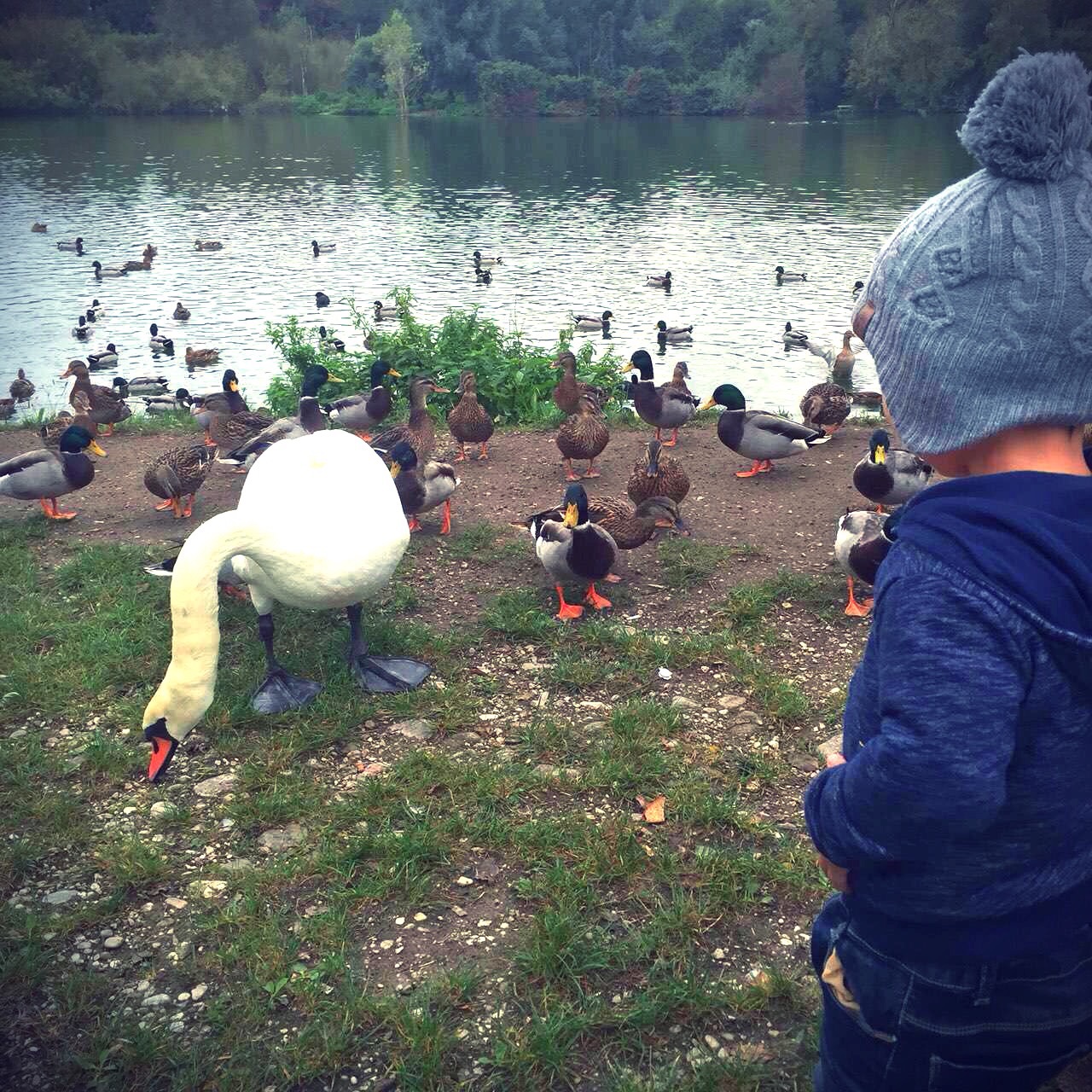“Are you Chinese?”
“Are you Chinese?” On a sunny winter day in December, an ayi wearing a beige quilted jacket, a receptionist in the new compound we’d live in temporarily, throws this question at my 2.5 year old toddler son. To the receptionist, this question is probably on par with asking “Have you eaten yet?” And to my toddler son, the answer is as simple as the question: “I am.” The female receptionists all laugh about his answer. My son grasps my hand tightly, and we leave for the elevator.
These days, I take care of my baby and toddler son during the day. Some days are chaotic, and I’m just glad we’ve made it to the evening. On other days, everything works perfectly during the day: my sons both get their needs met on time―food, naps, clean diapers, and cuddle time with mommy are all completed. Whenever we leave to go bobsledding or buy fruits and vegetables in one of the shops down the street, I bundle up my toddler son, dress my baby, put him in the sling, and add a blanket for another layer of warmth.
“Where did you learn to speak Chinese so well?”
Once outside, strangers wearing layer upon layer of dark winter clothes will stop in their tracks when they see us, turning their heads when we walk by. A mom taking two kids out on her own is basically unheard of here, even more so taking them out in the midst of winter, no matter how warm winter might be this year. Winter is not measured in degrees, it is counted in days of the Chinese Lunar Calendar, a calendar pre-dating the thermometer by hundreds of years and thus having proven its credibility by age. One or the other sturdy Chinese grandmas will stop in her tracks and reach under the blanket to touch my bundled-up baby, crying out loud with surprise over the fact that his feet are, indeed, warm. While the grandmas are wondering if my baby is warm, the aunties and uncles are much more interested in my toddler son’s language acquisition.
“Can you speak Chinese?”
“Did you understand what your mother just said to you [in that foreign language]?”
“Where did you learn to speak Chinese so well?”
These are all questions frequently thrown at him. Everyone is amused at his local Northeastern Chinese dialect when he answers, a dialect he is more apt at speaking than his Northeastern Chinese dad. Some will excitedly exclaim: “He speaks our tongue!”
 Not all questions are easy for my son to answer. When a shop owner, penned in between the cashier desk and piles of pink bags of washing detergent, asks my toddler son if he has a Chinese name, he says he doesn’t. The shop owner changes the question: “What’s your name?” My son replies with his Chinese name. Having grown up as part of the majority culture, it is easy for me and for the shop owner to make mental captions of “Chinese” and “foreign.” To my son, his Chinese name is simply his name, just as much as his German name is his name. Chinese and Austrian are not separate, but instead inseparable entities for him.
Not all questions are easy for my son to answer. When a shop owner, penned in between the cashier desk and piles of pink bags of washing detergent, asks my toddler son if he has a Chinese name, he says he doesn’t. The shop owner changes the question: “What’s your name?” My son replies with his Chinese name. Having grown up as part of the majority culture, it is easy for me and for the shop owner to make mental captions of “Chinese” and “foreign.” To my son, his Chinese name is simply his name, just as much as his German name is his name. Chinese and Austrian are not separate, but instead inseparable entities for him.
“A Chinese child should have a Chinese mother”
“Little brother”, one day a Chinese girl two years older than my son says, “a Chinese child should have a Chinese mother.” I’m not sure if I should applaud her for seeing him as her equal―Chinese, or if I should tell her that he carries an Austrian passport, just like his mom. I decide to simply let it go. The girl seems too young to understand the connotations of what she just said, and my son didn’t even listen. He looks at a red kite flowing on the clear blue sky. He couldn’t care less about these questions. In the future, they will be his to answer, or―if he doesn’t like the questions asked―his to ignore. I hope that no matter which questions my sons are asked and which answers they choose, they’ll always know that they are loved and perfect just the way they are. I also hope that they will be able to choose an identity they are comfortable with, but unlike the kite floating in the sky, that they won’t be held down by strings attached.
Ruth Silbermayr-Song is an Austrian illustrator, German teacher and mother of two. She writes about life in China as a foreign woman, her cross-cultural marriage to a Chinese man, and child rearing bridging cultures and languages on her blog China Elevator Stories. Her story of pregnancy and parenting in China has appeared in the anthology “Knocked Up Abroad Again”.
Photos courtesy of Ruth Silbermayr-Song





3 Comments
Pingback: Articles you missed while I was somewhere else - China Elevator StoriesChina Elevator Stories
“He couldn’t care less about these questions. In the future, they will be his to answer, or―if he doesn’t like the questions asked―his to ignore.” I like your attitude. I think it’s a mistake to be looking for problems or taking offense too easily. My three half-Chinese daughters grew up in Manila and then in Seattle, so maybe they weren’t seen as unusual as frequently. But even when people did make thoughtless comments, it didn’t bother them. They knew who they were and they liked who they were.
Thank you for your comment, Nicki! Great to hear that they weren’t bothered by these comments and have so much confidence.